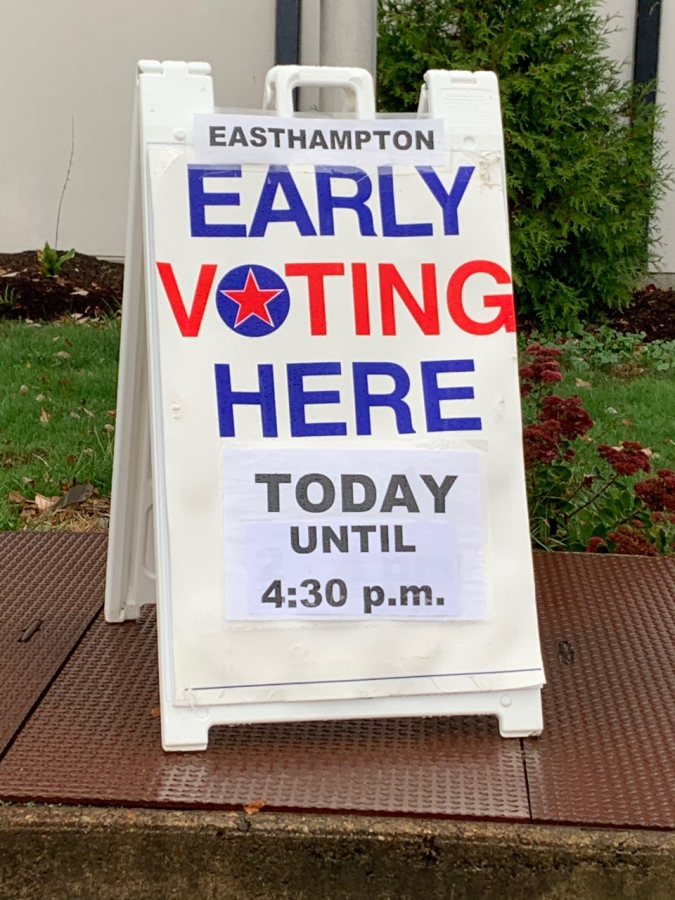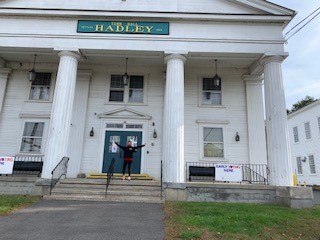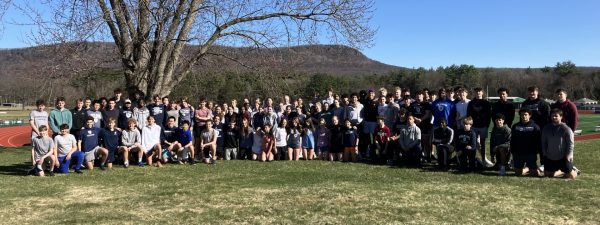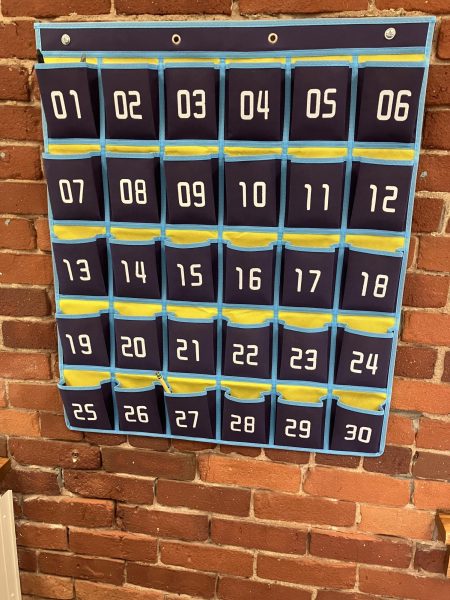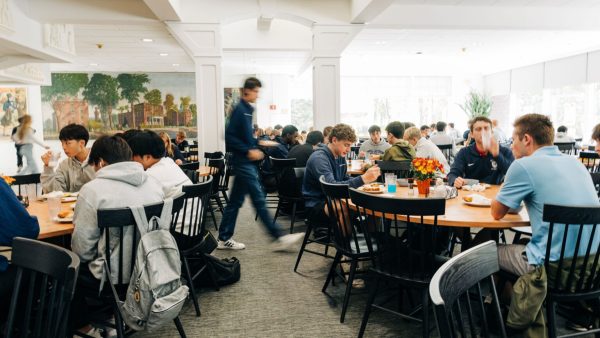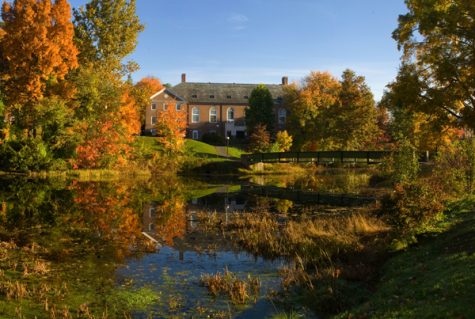Students, Faculty Exercise Their Constitutional Right to Vote
At a time where the country is very divided, this year’s election is considered especially crucial in determining the direction the democracy will go.
Getting most young Americans to vote has historically been difficult. According to the Center for Information and Research on Civic Learning and Engagement at Tufts University, roughly 50% of American voters aged 18-29 years voted in the 2016 election.
Post-graduate Henry Eustis says it was satisfying to vote, and he hopes others do as well.
“I have in fact already voted by mail, I sent in my ballot last week,” he said. “I am 18 so this will be my first time voting and I think it is super important, especially in a time where our country is in a state of disarray. It felt good to vote and I encourage seniors who are 18 to do the same.”
Visual and performing arts teacher Wendy Staples values the importance of voting and encourages students to vote if they can.
“It is important for students to vote because they are citizens of their cities, states, and this country,” Staples said. “Ultimately, the are voting on people who will make decisions for the present but those decisions also affect the future.”
Staples also encourages students to be aware of what is going on in the world even if they are too young to vote.
“If students are too young to vote, I urge them to be cognizant of current events in order to be informed when their turn comes,” she said. “I wasn’t interested in politics when I was younger and it was only in my late twenties that I began to pay attention … I wish I had started sooner!”
Meg Valine, Director of International Student Programs, said she votes every election at the White Brook Middle School polling site. She likes to observe the atmosphere of the polling location.
“I’m exercising my right to vote and share my opinion,” said Valine. “I like seeing what the scene is and the excitement or stress … To me that’s part of the process.”
Mail-in ballots have seen a lot of controversy this year, with the post office being accused of dumping ballots on multiple occasions. According to Fox News, over 1,800 pieces of mail, including 99 ballots, were dumped in New Jersey. More ballots were dumped in Washington according to Koin.com.
A majority of Williston students cannot vote; some miss the deadline by just days, including Liam Coughlin, a senior. He would vote if he was old enough and understands the responsibilities that come along with the ability to.
“I wish I could vote, and certainly would be voting if I was eligible to,” he said. “I will register to vote as soon as I turn 18 because I understand the duty I have to partake in the political system that affects me.”
Liam, who turns 18 in July, also would like the voting age to be lowered because of the large impact elections will have on him and others who just missed the voting age cut.
“I wish the national voting age was lowered,” he said. “I think it is unfair that I am unable to vote for representatives that will be in office [until] I turn 18. I could be drafted into war when I turn 18 by politicians I did not have the right to vote for or against.”
Anna Richardson, a senior, turns 18 on November 5. Like Liam, she is disappointed that she misses the deadline to vote.
“It’s pretty upsetting,” she said, “because now I have to wait another four years.”
Some people wonder if their vote even counts. After all, the Electoral College has the final say. The Electoral College votes after the general election. However, in elections for governors, members of congress, and mayors, the popular vote does have the final say.
The New York Times predicts that if Biden does not win the popular vote by a significant margin, President Trump will be re-elected by the electoral college.
“If he wins 4.5 million more votes than the president? He’s still got a three-in-four chance to be president,” said New York Times editor Jesse Wegman. “Anything less, however, and Mr. Biden’s odds drop like a rock. A mere three million-vote Biden victory? A second Trump term suddenly becomes more likely than not.”
The President is chosen by the Electoral College and is inaugurated in January. Once that person accepts the Oath of Office, they assume the role of Commander-in-Chief of the armed forces, as well as Head of Government and Head of State.
Taryn Queenin, a senior, is voting in the 2020 election. She believes that her vote is important “to keep our democracy alive,” she said.
Senior Hannah Cannizzo, a boarder who lives in Virginia, received her absentee ballot for this year’s election. She was raised to believe that voting was something that she should do as a citizen.
“When I was younger, I was always told, once you turn 18 you get to vote,” she said. “I always thought that when I turned 18 I would vote.”
The Willistonian also caught up with several faculty members who had just exercised their constitutional right.
Erin Davey, Assistant Dean of Students, voted Oct. 21 by mail-in ballot. She was proud to exercise her constitutional right, but nervous about doing it correctly.
“It was very anxiety-ridden, to sign my signature exactly the way it is on my license. I practiced 500 times,” she said.
Coach Ben Farmer says voting is a great way to let your voice be heard.
“It’s my way of making a change, a little change,” said Farmer. “It’s my way to contribute.”
From behind her partition in the Schoolhouse, Ms. Motyka shared a picture of herself dropping off her ballot at the Town Hall in Hadley.
Matt is a junior from Canton, MA. He loves swimming, hockey, and drawing cars. His dream car is an Audi R8.



